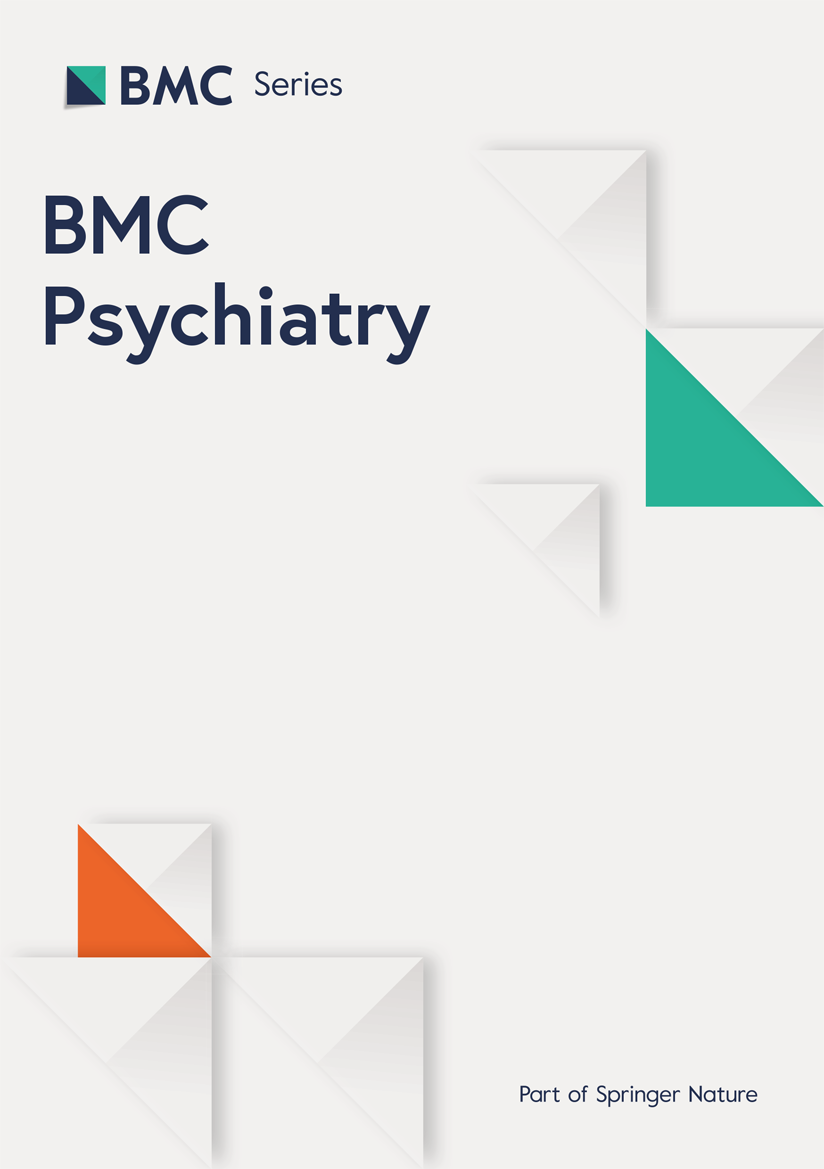Reproductive Biology and Endocrinology volume 23, Article number: 85 (2025) Cite this article
Nearly all males with cystic fibrosis (MwCF) are infertile and, thus, require the use of assisted reproductive technology (ART) to have biologic children. This study aims to describe the fertility and family-building knowledge, experiences, and care utilization of this population and to compare these findings to the general United States (US) population.
We conducted an anonymous cross-sectional study of self-reported survey data compared to data from the 2017–2019 US National Survey for Family Growth (NSFG). We recruited MwCF age 15 years and older at seven US cystic fibrosis (CF) centers.
A total of 532 MwCF (mean age 35.3 ± 11.6 years) completed the survey. 83% knew that almost all MwCF are infertile and 84% were aware that MwCF can have biological children. 71% correctly identified the most common cause of male CF infertility. One third of MwCF stated they had never been told by anyone they were infertile due to their CF (mean age of discussion 19.3 ± 8.8 years). 31% reported being a parent. Among parents, 66% were a parent to a biological child born of a partner’s pregnancy, 20% via step-parenthood, 15% adoption, 4.3% surrogacy, and 0.6% foster parenthood. Compared to 44% of NSFG males, 18% of MwCF age 15–49 years reported being a parent to a biological child born of their partner’s pregnancy (p < 0.001). Among all MwCF, 82% with a biological child reported that they required medical assistance. Among those age 15–49 years, 87% of MwCF with a biological child required medical assistance compared to 9.4% of NSFG males (p < 0.001). Nearly three-quarters (73%) of MwCF who were biological parents underwent sperm retrieval via a variety of extraction techniques. 91% of those utilizing ART underwent in vitro fertilization and 9% intrauterine insemination of their partner.
MwCF face significant disease-related fertility and family-building implications with suboptimal counseling. Most MwCF who are parents pursue biological parenthood via a variety of ART services, but one-third chose alternative paths to parenthood. Further research is needed to best understand and support the family-building of MwCF.
Not applicable.
Cystic fibrosis (CF) is a genetic disorder caused by variants in the CF transmembrane conductance regulator (CFTR) gene resulting in dysfunctional chloride and bicarbonate transport in multiple organs. Historically considered a disease of childhood, new therapies that correct CFTR-mediated anion transport (CFTR modulators) have drastically improved the lives of many people with CF. Thus, more people with CF are considering and pursuing parenthood [1,2,3].
Family-building is complicated for males with CF (MwCF) as ~ 98% are infertile due to atresia or absence of the epididymis and/or congenital bilateral absence of the vas deferens (CBAVD) leading to obstructive azospermia [4]. While pregnancies among females with CF have more than doubled following widespread CFTR modulator availability [1], CFTR modulators do not change the CBAVD status for post-natal MwCF. Semen analysis is the mainstay of diagnosing infertility in MwCF; however, an experienced provider can often palpate for presence of a vas deferens and imaging techniques may identify azoospermia pathogenesis [5].
To have biologic children, most MwCF and their partners must utilize a range of assisted reproductive technologies (ART) [4]. Sperm retrieval from the epididymis or testes can be performed using needle aspiration or surgical extraction and is followed by in-vitro fertilization (IVF) or intrauterine insemination (IUI) in female partners [5]. Significant barriers to ART utilization exist, including limited access due to cost and availability [6,7,8,9].
MwCF must also consider the heritability of CF in their family-building decisions [10] Furthermore, they must decide whether to use modulators during ART, natural conception, and/or partner pregnancy. Data from reproductive animal models demonstrated no adverse effects on fertility or genotoxicity of individually administered CFTR modulators at normal human doses [11]. While survey-based work demonstrated that CFTR modulator use during reproduction and partner pregnancy in MwCF did not result in higher-than-expected rates of miscarriage or congenital anomalies [11], the guidance provided to MwCF related to modulator use during the ART process is unknown. Finally, MwCF may pursue other family-building paths, such as adoption, foster or step-parenthood, or surrogacy [7]. However, such decisions are complex, and an interplay exists between CF infertility, masculinity, and mental health [12].
Despite the significant impact of CF on fertility and family-building, no studies have examined the reproductive health experiences, care utilization, and preferences of MwCF in the era of modulators. The purpose of this study is to understand and compare the experiences and care of MwCF to the general US population. We hypothesized that MwCF would be less likely to be fathers and more likely to require medical assistance to have biologic children compared to healthy counterparts. We also hypothesized that MwCF would experience gaps in reproductive health care provision related to fertility and family-building services.
From January 2023 to February 2024, we conducted an anonymous computer-based cross-sectional survey of MwCF age ≥ 15 years at seven US CF centers. The survey assessed CF-related reproductive health knowledge, fertility and family building experiences and perspectives, behaviors and history, and care utilization and preferences. We collected race and ethnicity as surrogates for social determinants of health and not for use as biologic variables.
Participants were eligible if they had a diagnosis of CF (via sweat test or genotype), ≥ 15 years of age, assigned male sex at birth, and able to complete the survey in English.
We collected data anonymously using the University of Pittsburgh’s Research Electronic Data Capture tool (REDCap; UL1-TR-001857) [13]. The Boston Children’s Hospital institutional review board (IRB) approved this study (IRB-P00042415).
We recruited participants in-person or virtually during a regularly scheduled clinic visit or via email or phone call. We electronically distributed surveys to eligible participants either via a site-provided encrypted device or through secure phone or e-mail messages. We remunerated all participants $20.
We developed survey content from our prior qualitative and survey-based work. [3, 12] We derived and modified select items from the US National Survey of Family Growth (NSFG), s a nationally representative reproductive health survey of US people aged 15–49 years (n = 6,141 in 2017–2019 sample) [14]. To assess knowledge of CF-related reproductive health considerations, we adapted ReproKnow [15]. We refined the survey via cognitive interviews with three MwCF using think-aloud and verbal probing techniques [16, 17]. The survey took ~ 25–40 min to complete.
We summarized data using descriptive statistics. We calculated means and standard deviations for continuous variables and sample proportions for categorical variables with 95% confidence intervals. We calculated percentages based on the total sample size eligible for each question. We calculated missing responses for a given question from the number of non-responses among those eligible to respond (response rates ranged from 95 to 100% for any given question).
We analyzed the fertility and family-building-related findings of all MwCF and then compared the results of MwCF age 15–49 years to data from males in the 2017–2019 NSFG sample utilizing two-sample t-tests and tests of proportions accounting for NSFG survey design. As the NSFG utilizes a probability sampling framework that oversamples Black and Hispanic respondents, we created a merged dataset of NSFG and MwCF survey data using a weighted variable. We ran adjusted linear and logistic regression models to compare outcomes between 15-49-year-old MwCF and NSFG respondents. We included demographics whose proportions or distributions varied significantly between the two samples as covariates in the models (i.e., age, race/ethnicity, and education). We did not include employment status as a covariate as it is closely related to CF status (with many MwCF reporting being on permanent disability). We analyzed survey data using STATA 17 (StataCorp LLC, College Station, TX).
A total of 532 MwCF (mean age 35.3 ± 11.6 years) completed the survey. We approached 1100 MwCF, resulting in a 48% response rate. Among all MwCF, 99% identified as a man, 94% percent were non-Hispanic white, and 5.1% were Hispanic. 68% were working full or part time and 7.7% were going to school. 32% had a bachelor’s degree, and 25% had completed some college, vocational school, or had an associate’s degree. 56% were married or living with a partner. Compared to males in the NSFG sample (n = 5,206), MwCF age 15–49 years (n = 473) had significant differences by race and ethnicity, employment, and education. Table 1 summarizes key demographics.
Table 2 summarizes CF-specific demographics. Overall, 58% of MwCF reported a baseline forced expiratory volume in 1 s (FEV1) of > 70% predicted and 19% had been hospitalized or completed home IV antibiotics in the past year. 84% were currently using a CFTR modulator.
Nearly all MwCF surveyed (96%) were aware that partners can be tested for CF carrier status. 83% knew that almost all MwCF are infertile, and 84% were aware that MwCF can have biological children. 71% correctly identified CBAVD as the most common cause of male CF infertility, with 16% saying they were unsure of the cause. Two-thirds (65%) knew that the most commonly used CFTR modulator (elexacaftor/tezacaftor/ivacaftor [ETI]) does not correct CF-related infertility in adults, while 31% were unsure of its effect.
One third of all CF respondents (33%) stated they had never been told they were infertile due to their CF. Of those who had been informed, the mean age at the time of discussion was 19.3 ± 8.8 years. 76% of respondents reported that they had discussed parenthood with someone with one-third discussing this topic with their CF team. One third (33%) also reported discussing ART with their CF team.
39% of all MwCF ever underwent semen analysis (mean age 27.3 ± 6.4 years), 44% of whom were referred by their CF team. Overall, 27% of MwCF reported that they had ever discussed semen analysis with their CF team.
76% of all MwCF reported discussing at least one reproductive health topic with their CF team. 94% reported having such discussions with their CF physician or advanced practice provider, 30% with a CF social worker, 17% with a CF nurse, and 14% with an endocrinologist. A minority reported discussing reproductive health with other CF team members. The majority did not find these discussions uncomfortable or difficult.
Table 3 summarizes the family-building experiences of MwCF. 31% of all MwCF reported parenthood. Among parents, 66% had a biologic child born of a partner’s pregnancy, 20% via step-parenthood, 15% via adoption, and a minority via other methods. Compared to 44% of NSFG males, 18% of MwCF age 15–49 years reported being a parent to a biologic child via their partner’s pregnancy (p < 0.001). Among all MwCF, 82% with a biologic child required medical assistance. Among those age 15–49 years, 87% of MwCF with a biological child required medical assistance compared to 9.4% of NSFG males (p < 0.001). Receipt of fertility testing was more common among MwCF (79%) vs. NSFG males (55%; p = 0.003). Half of MwCF who required medical assistance reported that their partner underwent fertility testing vs. 62% of NSFG males (p = 0.046). 54% of MwCF respondents who were parents via partner pregnancy underwent preconception counseling; 19% reported that this was provided by their CF team, 71% by a fertility doctor, and 32% by an obstetrician/gynecologist.
Nearly three-quarters (73%) of MwCF who were parents to a biologic child reported undergoing sperm retrieval. 35% reported that they underwent TESE, 34% TESA, 10% MESA, and 6.3% PESA, while one quarter did not know the method used. 91% of those utilizing ART underwent in vitro fertilization (IVF) and 9% intrauterine insemination (IUI) of their partner.
Among MwCF who were parents via a partner pregnancy, 24% were taking a CFTR modulator when their partner became pregnant or during pregnancy. 27% were advised to continue taking their modulator during sperm retrieval and the same percentage were advised to do so during their partner’s pregnancy. 54% reported no counseling about modulator use during pre-conception and 62% during their partner’s pregnancy.
Among all MwCF, 52% reported they probably or definitely would like to have a child/another child in the future. 37% worry that their children will have CF, and 60% reported that their partners underwent or would undergo genetic testing to determine if they were a CF carrier.
Among all MwCF, 44% stated that they desired discussions with their CF team about their fertility, 31% about semen analysis, 31% about ART, and 24% about parenthood. Among these respondents, 92% preferred to have reproductive health discussions with their CF physician or advanced practice provider. 49% believed that the CF team member should start these conversations. 81% had no preference as to the gender of the CF provider who discusses these topics. 56% of MwCF who desired reproductive health discussions with their CF providers prefer having these discussions alone with no family member or partner present. Of those who did not desire reproductive health discussions with their CF team, 26% cited the team’s focus on pulmonary health, and 17% felt uncomfortable discussing these topics. A quarter of this group would prefer to have reproductive health discussions with their primary care provider (PCP) and 7% with another healthcare provider. Among all respondents, 35% of MwCF would be interested in seeing a reproductive health specialist or PCP during CF clinic.
While most MwCF are knowledgeable regarding CF-specific fertility and family-building concerns, the majority report inadequate reproductive health counseling and discussions. One-third of MwCF surveyed report never being told about their CF-related infertility. Nearly one-third of our sample are parents with the majority becoming so via partner pregnancy. As expected, MwCF were less likely to have biologic children and more likely to require medical assistance than males in the general US population. Most MwCF who were a parent to a biological child underwent sperm retrieval through a variety of means and utilized IVF.
MwCF face complex barriers to become biologic parents that are not shared by most females with CF. In a survey of 460 US females with CF, 32% reported becoming a parent via pregnancy [18]. In other surveys performed prior to the widespread use of the CFTR modulator ETI, 14–24% of females with CF have required fertility treatments to conceive [19, 20]. In contrast, our results demonstrate that only 18% of MwCF are parents via a partner pregnancy, with the vast majority requiring ART to do so. While CFTR modulators may improve survival and quality of life, male infertility will not change with modern CF therapies. Furthermore, the cost of ART compounds the already high financial burden of living with CF [21,22,23], which can have significant impacts on deciding if, when, and how to become a parent.
Our results echo those of a survey of Australian MwCF conducted prior to the CFTR modulator era which demonstrated that preferences around reproductive health are more consistent than clinical practices [24]. A 2024 survey of multidisciplinary US CF clinicians highlighted that the majority perceive reproductive health as important to address with MwCF, but also self-report low rates of discussions on these topics.[25] Notably, pediatric CF clinicians reported significantly less comfort and skill in discussing and managing male reproductive health. As MwCF desire reproductive health information during adolescence [2, 26], interventions to improve pediatric clinician readiness, comfort, and skills around reproductive health care is warranted.
This study has several limitations. Participants provided self-reported assessments related to reproductive health experiences and care, which may be subject to recall bias and may not be generalizable to all MwCF. Reproductive health experiences and care, especially related to ART services, are influenced by cultural and societal differences and, thus, results of a similar study may differ if conducted in other countries. Furthermore, the percentage of people identifying as Hispanic in this study is lower than in the general CF population (potentially because being English-speaking was part of the inclusion criteria). Moreover, we did not assess some relevant factors (i.e., insurance status, religious/personal preferences, mental health) that may influence fertility and family-building perspectives.
Future research should more deeply explore the experiences of MwCF and their partners related to ART utilization, including barriers such as cost, insurance coverage, and access. Research should also assess the interplay of infertility, ART and family-building decisions, and masculinity among MwCF and its impact on mental health. Investigation of the success rates of different ART procedures and paths among MwCF and their partners compared to the general population is also warranted, including the impact of the ART process on the physical health of MwCF. Finally, development of patient-facing resources related to family-building and provider and systems-based interventions are needed to assure that MwCF and their partners receive adequate reproductive health counseling and care. Improvements in reproductive health care for MwCF can serve as models for those with other pediatric-onset chronic conditions with male reproductive health considerations.
MwCF face significant disease-related fertility and family-building implications with suboptimal counseling. Most CF fathers pursue biological parenthood via ART services, but one-third chose alternative paths. Improved reproductive health counseling and care is needed, especially as people with CF are living longer and healthier lives.
No datasets were generated or analysed during the current study.
- CF:
-
Cystic fibrosis
- CFTR:
-
CF transmembrane conductance regulator
- CFTR modulators:
-
CFTR-mediated anion transport
- MwCF:
-
Males with CF
- CBAVD:
-
Congenital bilateral absence of the vas deferens
- ART:
-
Assisted Reproductive Technology
- IVF:
-
In-vitro fertilization
- IUI:
-
Intrauterine insemination
- US:
-
United States
- RC:
-
Research coordinator
- REDCap:
-
Research Electronic Data Capture tool
- IRB:
-
Institutional Review Board
- NSFG:
-
National Survey of Family Growth
- FEV1:
-
Forced Expiratory Volume in 1 s
- ETI:
-
Elexacaftor/tezacaftor/ivacaftor
Cystic Fibrosis Foundation (KAZMER21A0).
The study was conducted in accordance with the ethical principles outlined by the Declaration of Helsinki and the Belmont Report. The Boston Children’s Hospital Institutional Review Board approved this study (IRB-P00042415). All subjects provided informed consent to participate in survey data collection.
Data regarding any of the subjects in the study has not been previously published unless specified.
Data will be made available to the editors of the journal for review or query upon request.
Not applicable.
The authors declare no competing interests.
Springer Nature remains neutral with regard to jurisdictional claims in published maps and institutional affiliations.
Open Access This article is licensed under a Creative Commons Attribution-NonCommercial-NoDerivatives 4.0 International License, which permits any non-commercial use, sharing, distribution and reproduction in any medium or format, as long as you give appropriate credit to the original author(s) and the source, provide a link to the Creative Commons licence, and indicate if you modified the licensed material. You do not have permission under this licence to share adapted material derived from this article or parts of it. The images or other third party material in this article are included in the article’s Creative Commons licence, unless indicated otherwise in a credit line to the material. If material is not included in the article’s Creative Commons licence and your intended use is not permitted by statutory regulation or exceeds the permitted use, you will need to obtain permission directly from the copyright holder. To view a copy of this licence, visit http://creativecommons.org/licenses/by-nc-nd/4.0/.
Jathal, I., Stransky, O.M., Wright, C.E. et al. Fertility and family-building experiences and perspectives of males with cystic fibrosis. Reprod Biol Endocrinol 23, 85 (2025). https://doi.org/10.1186/s12958-025-01417-9
Received:
Accepted:
Published:
DOI: https://doi.org/10.1186/s12958-025-01417-9











